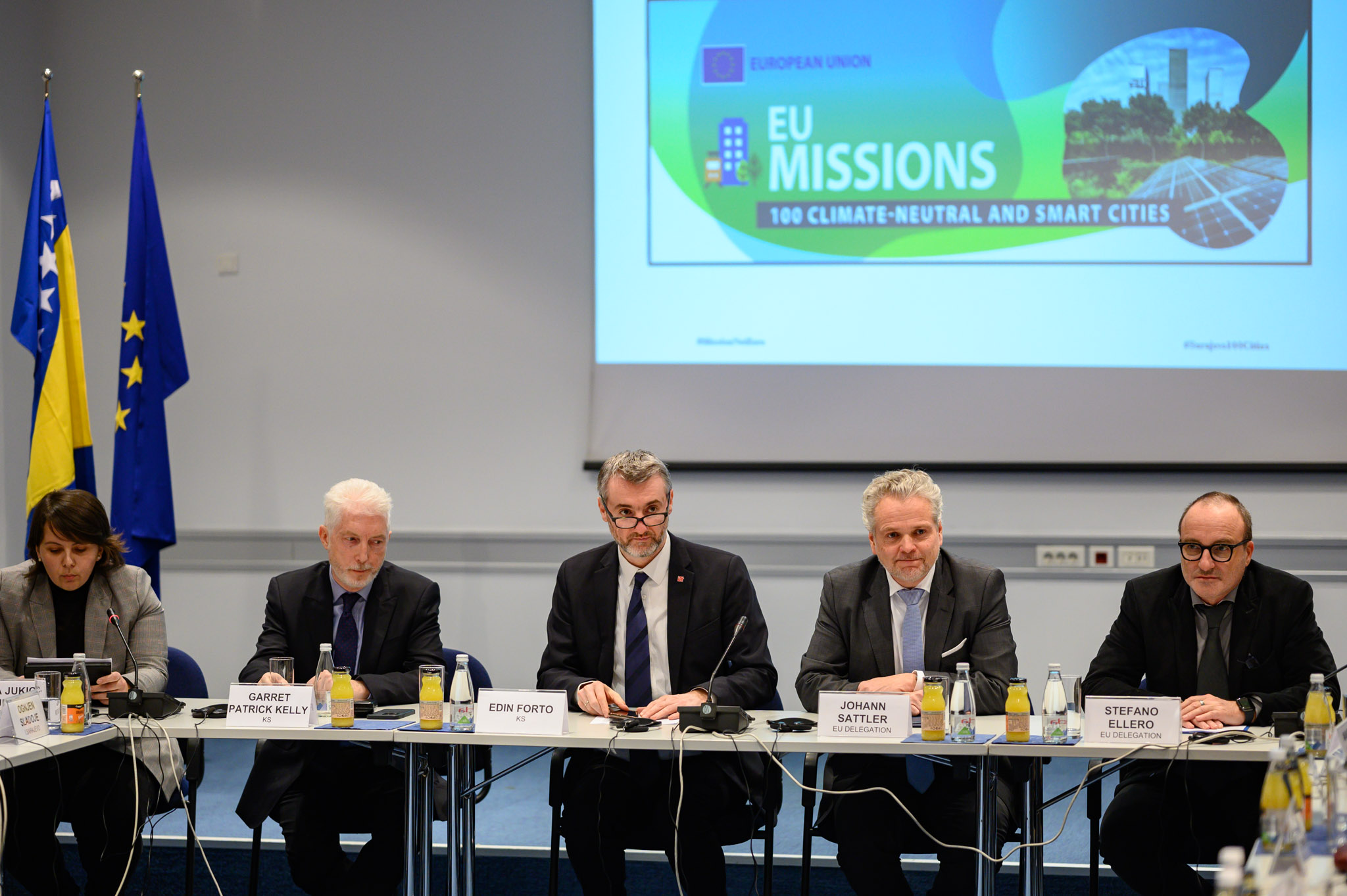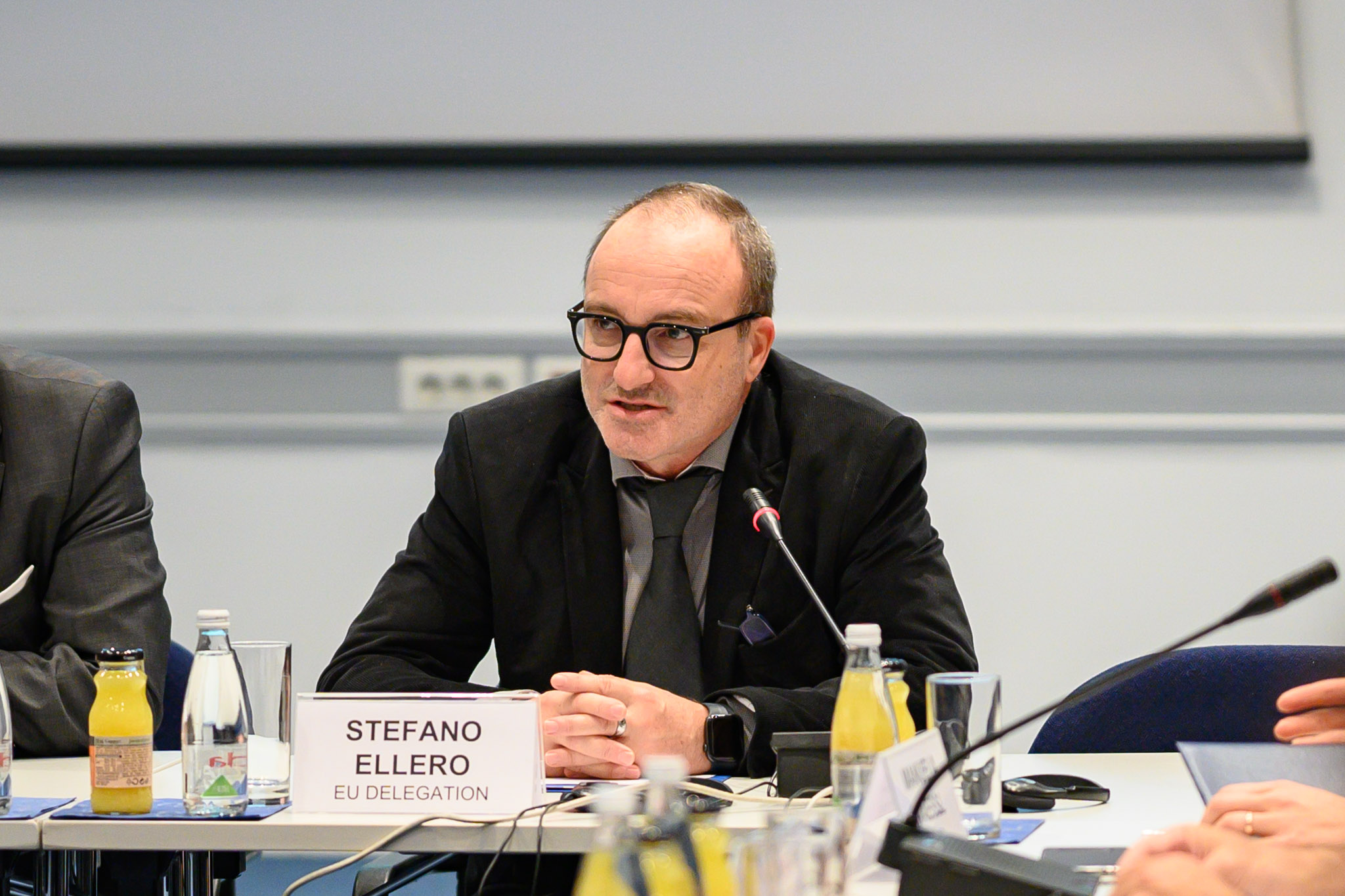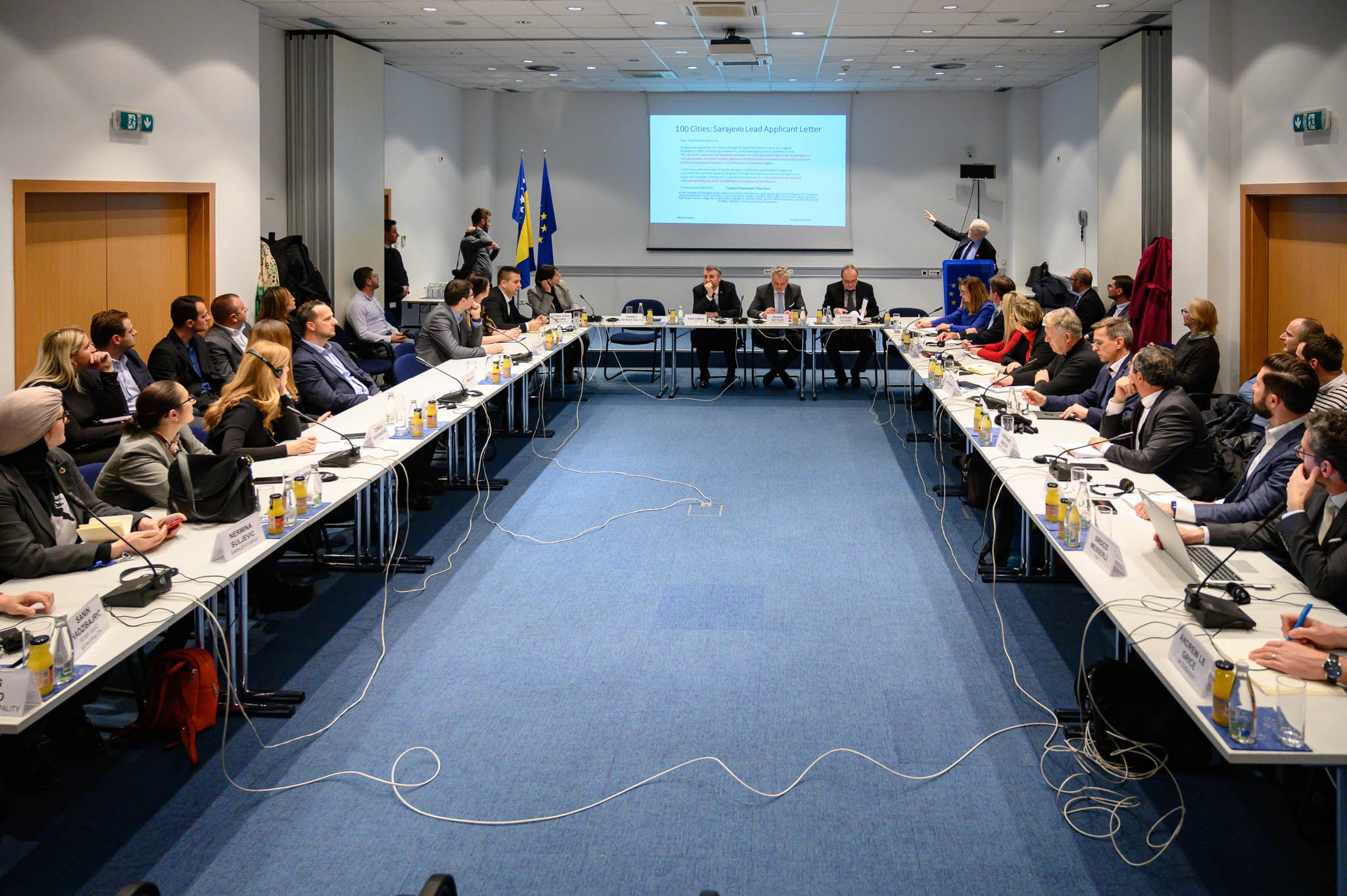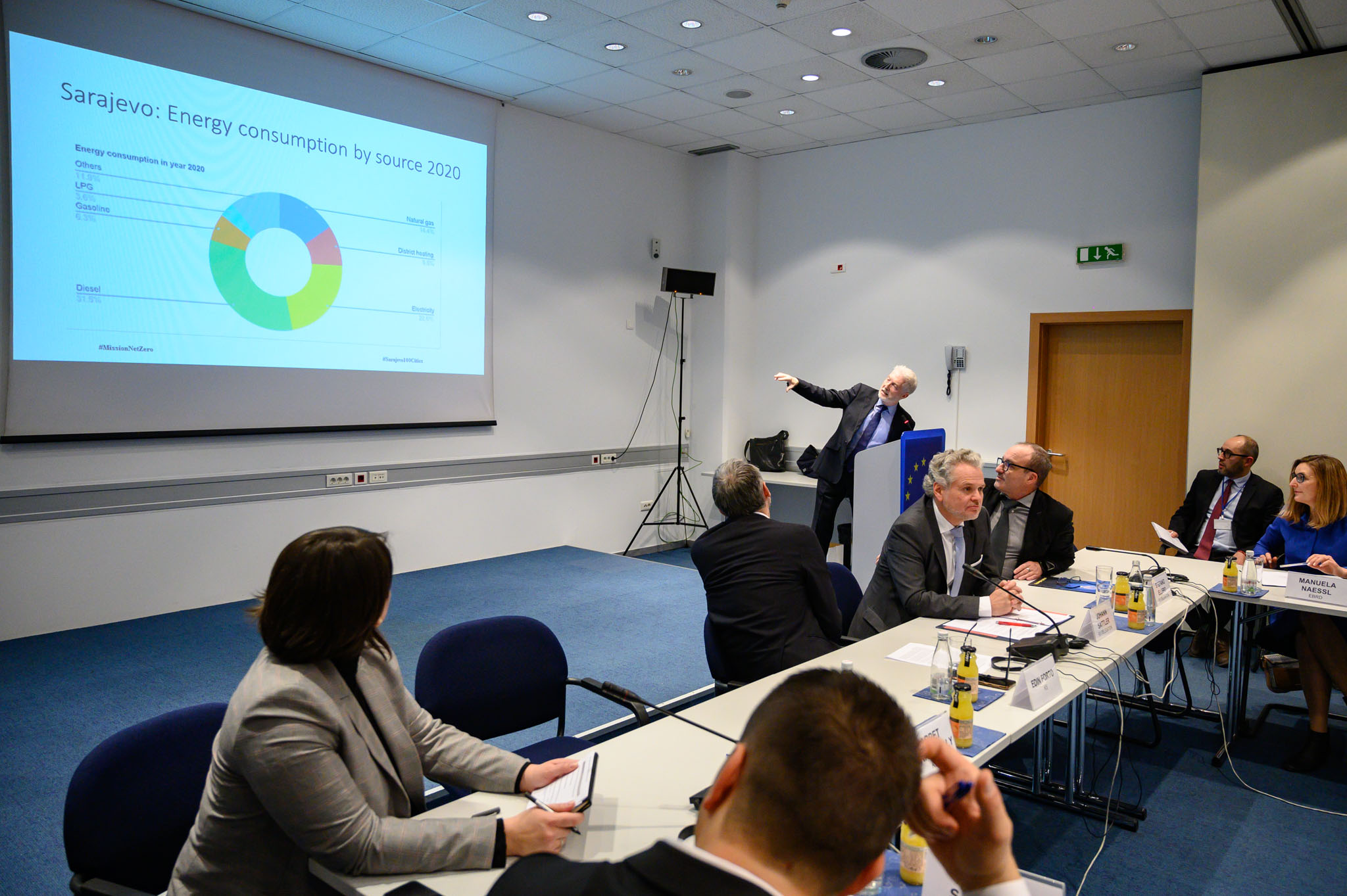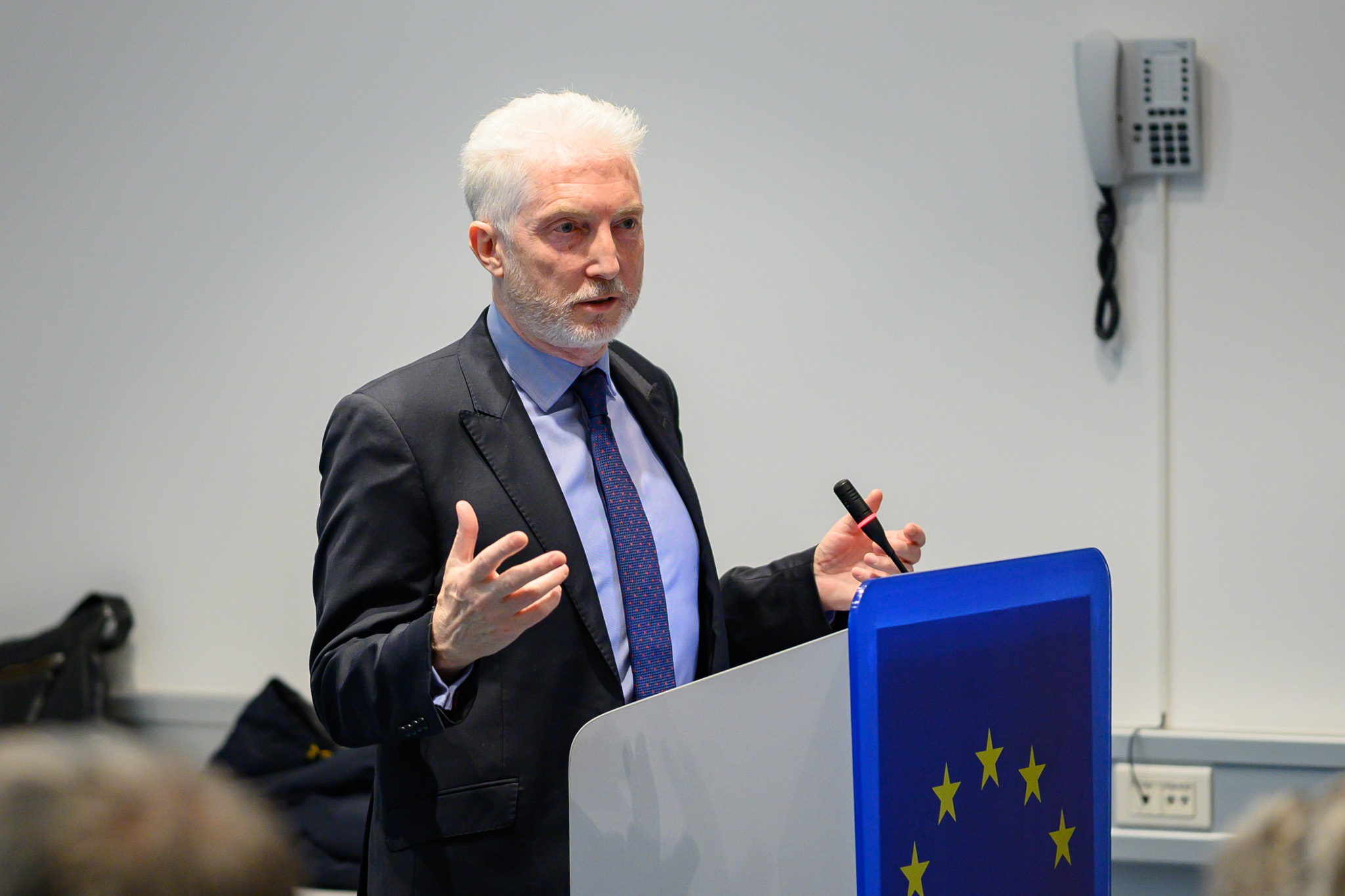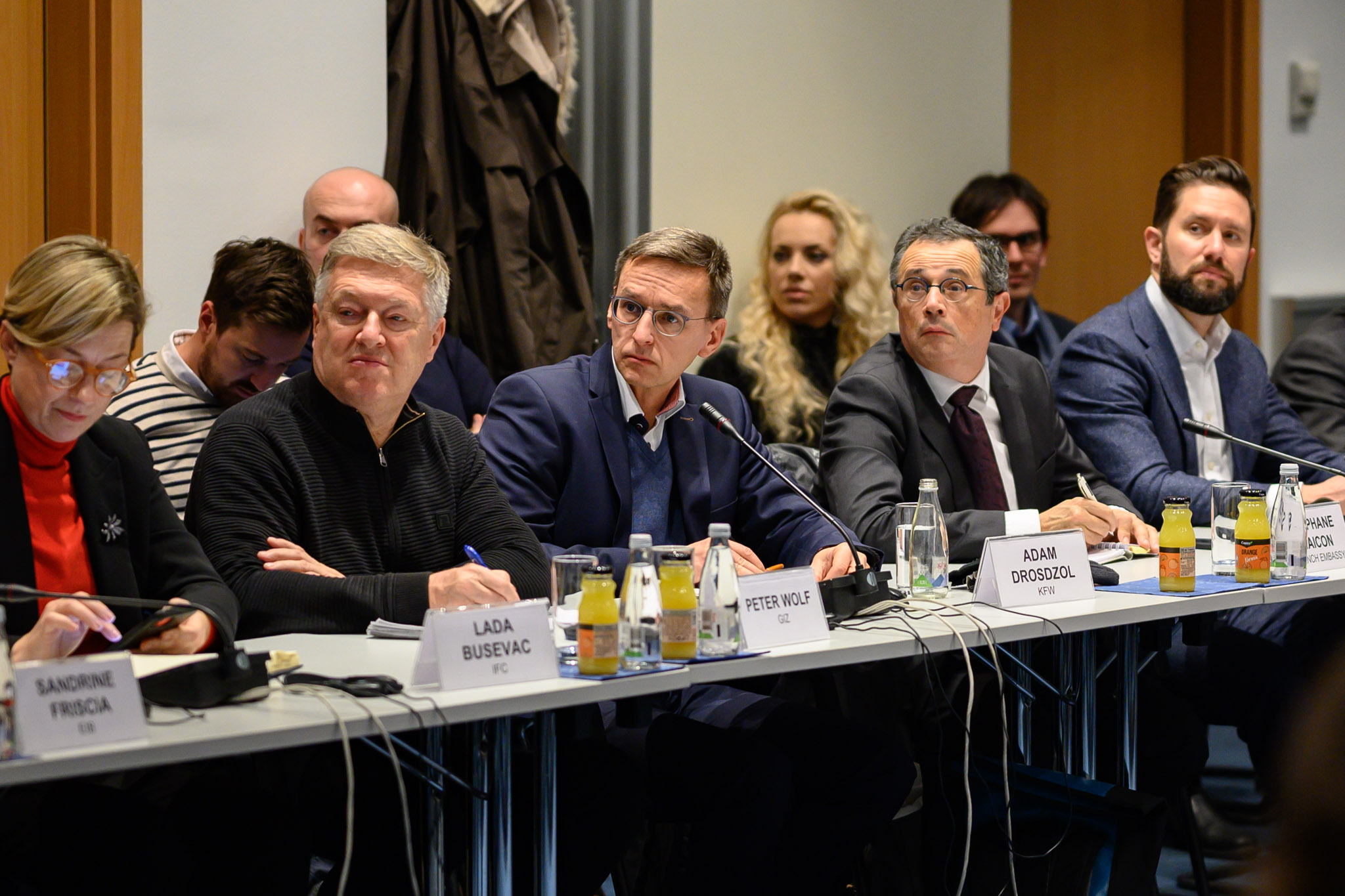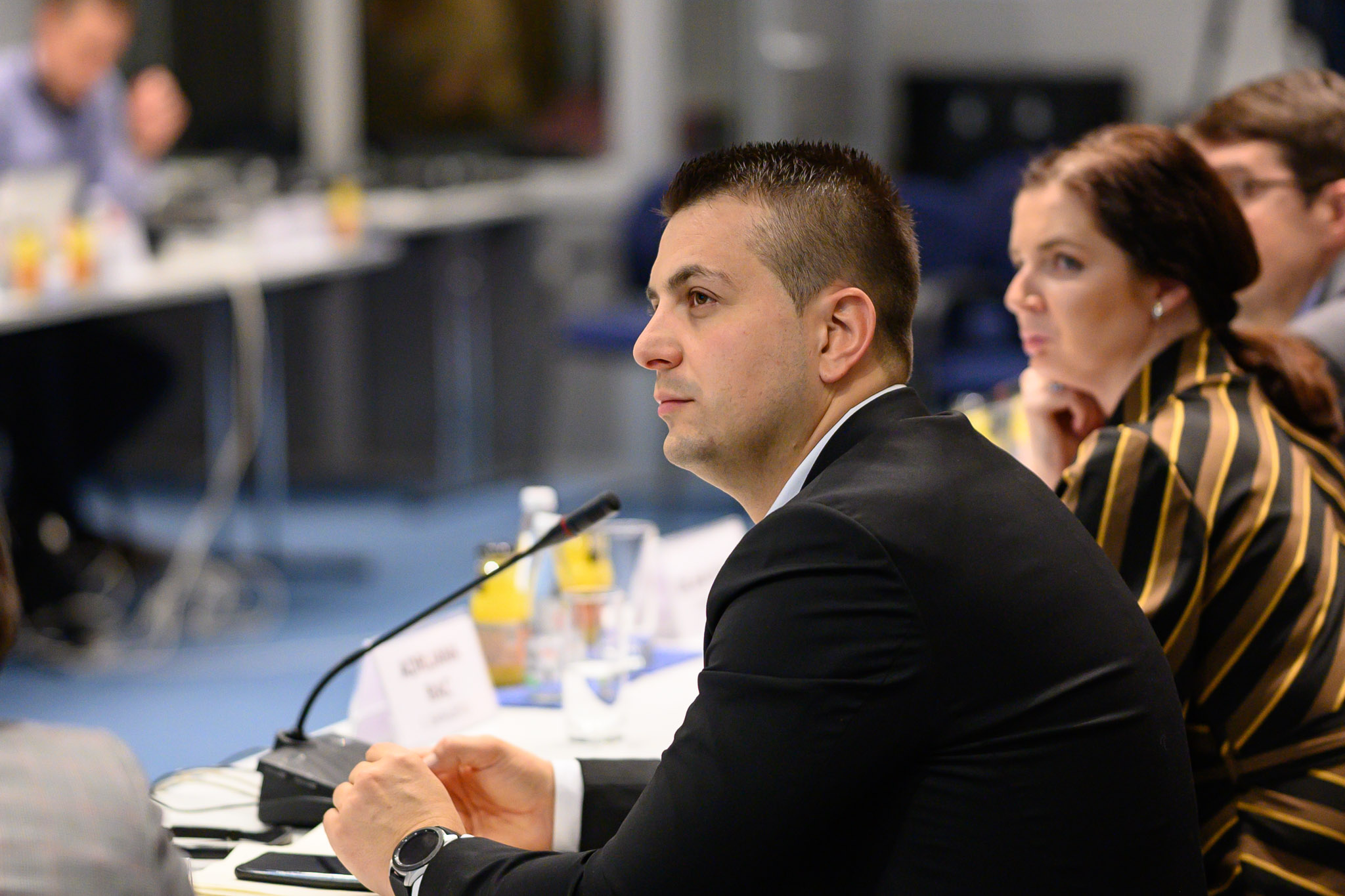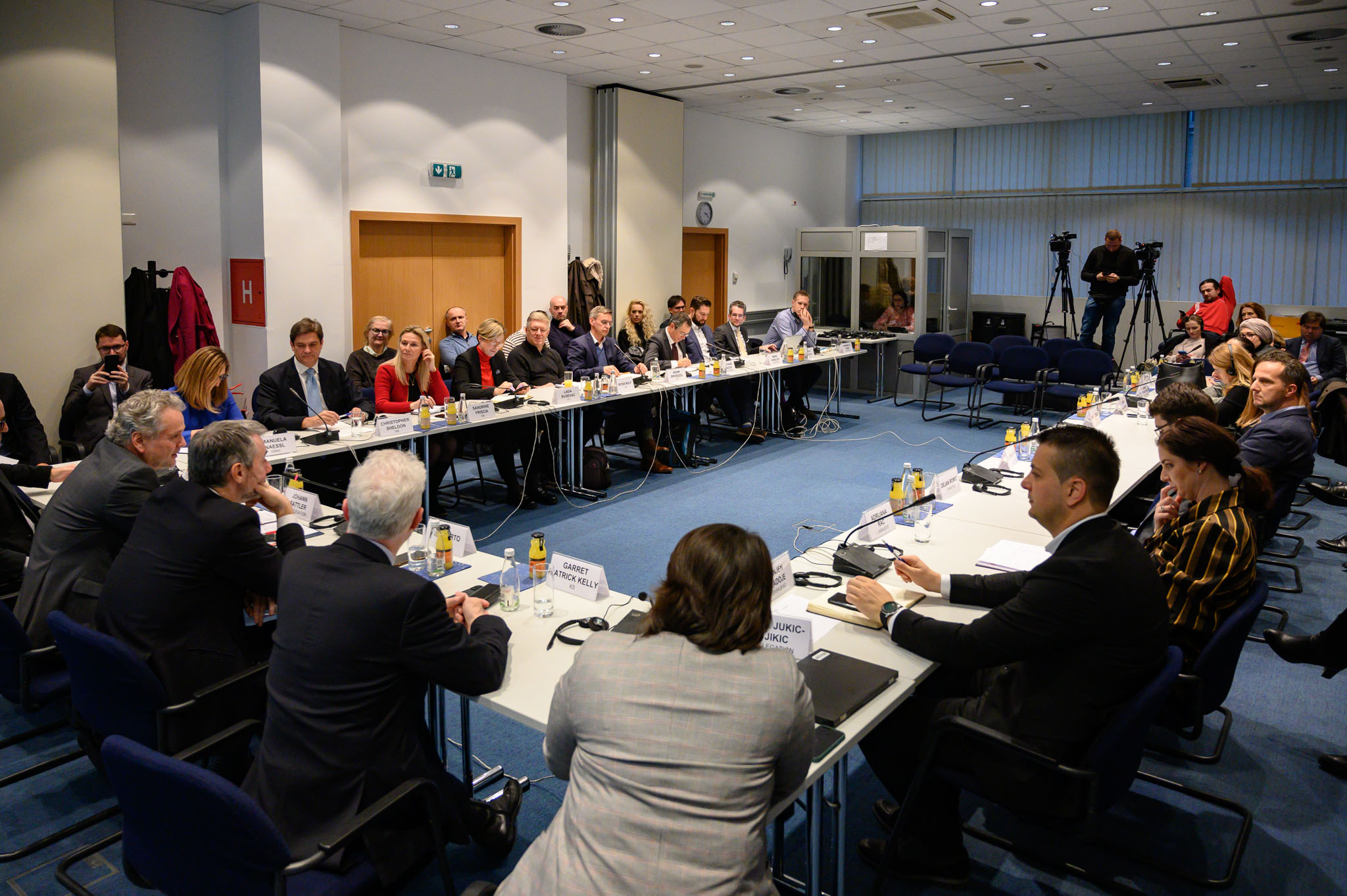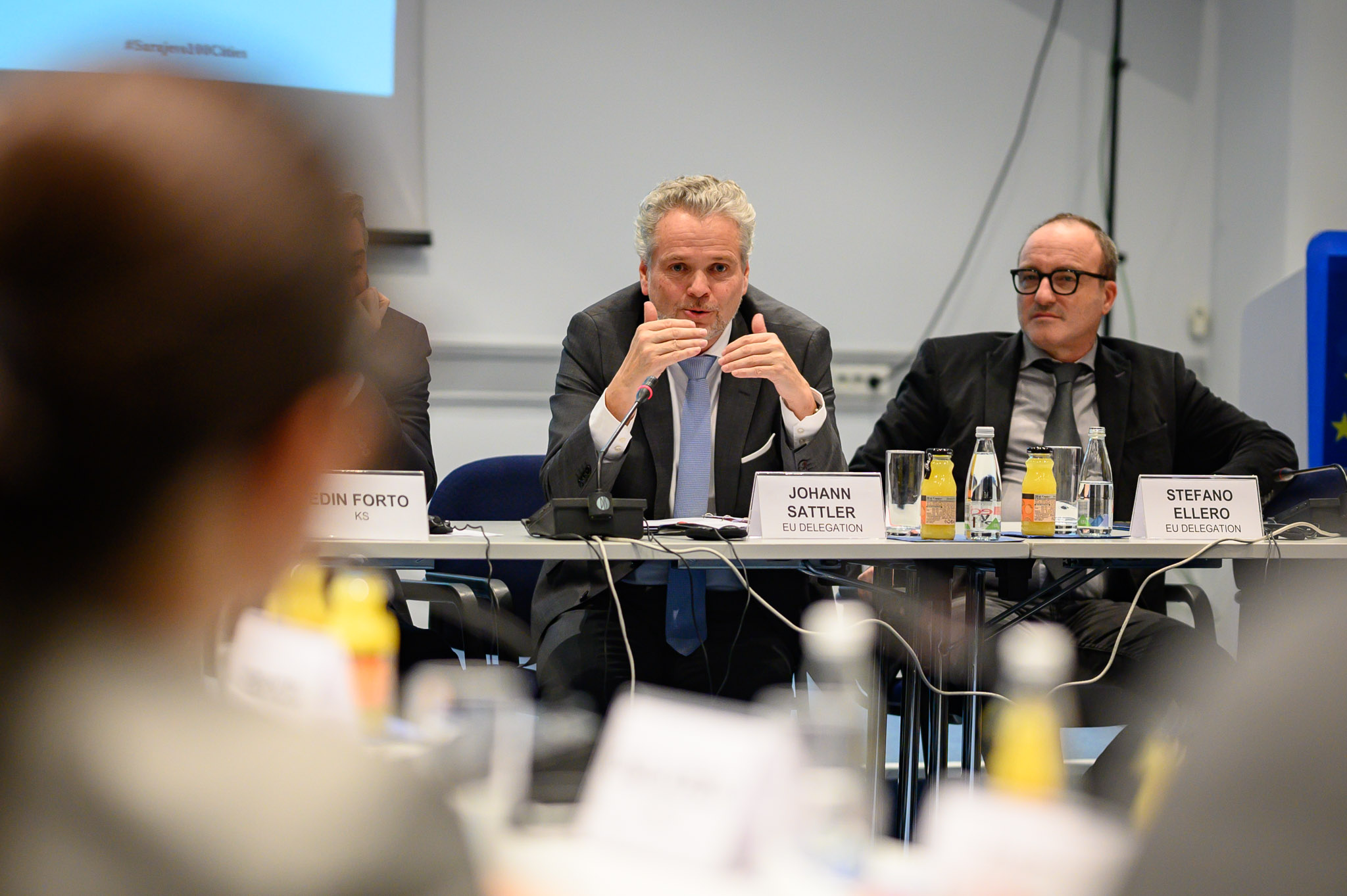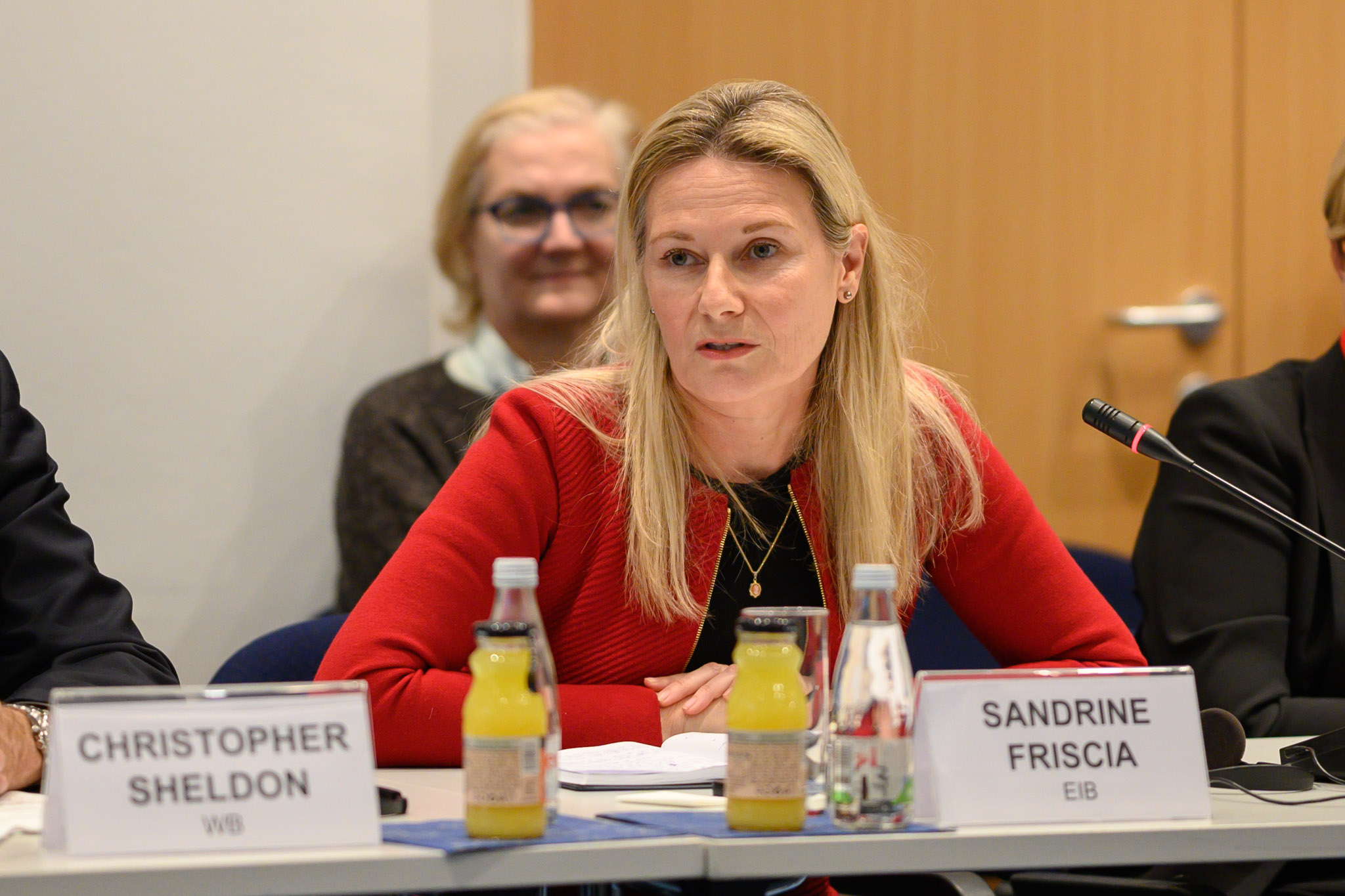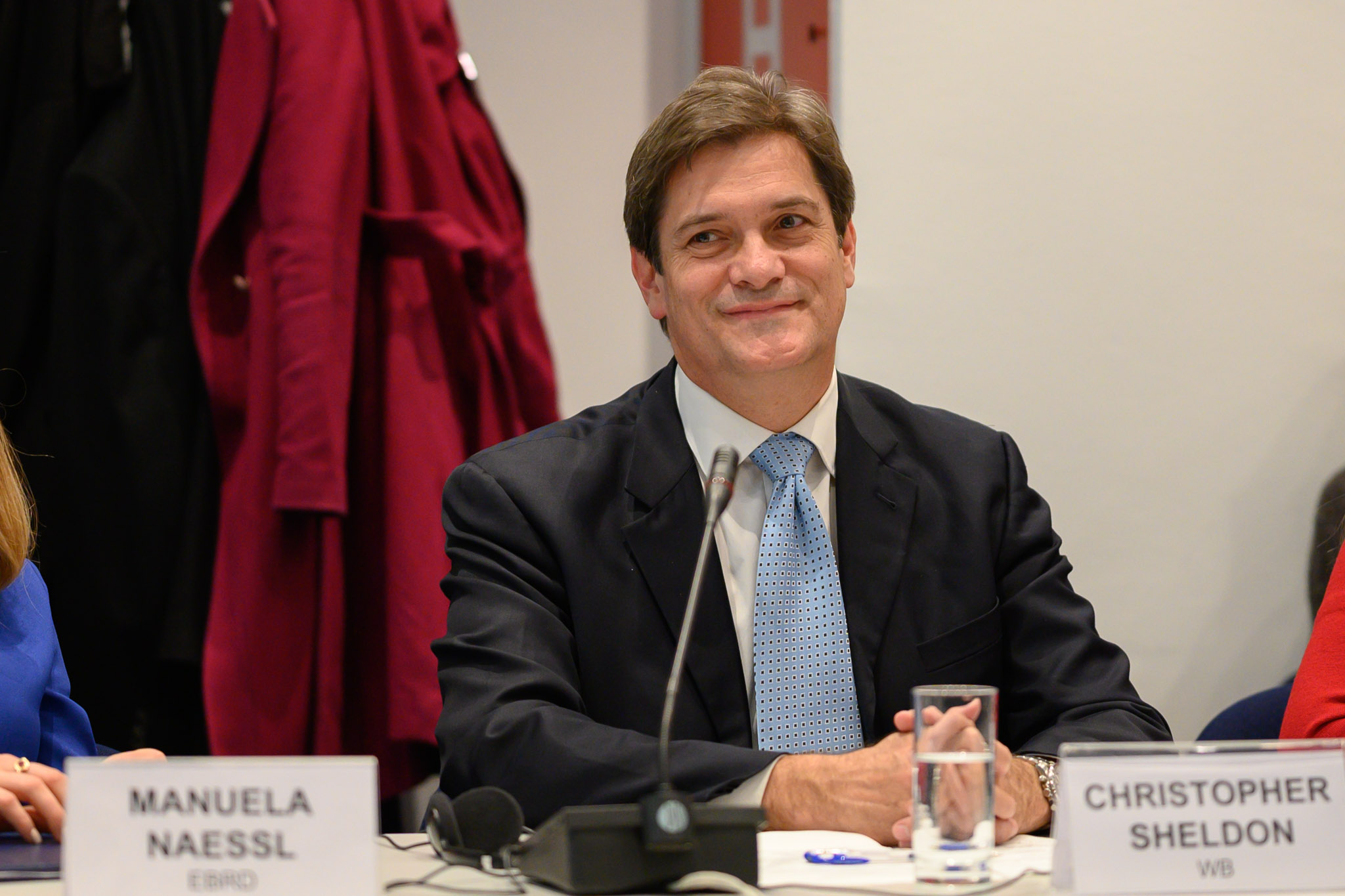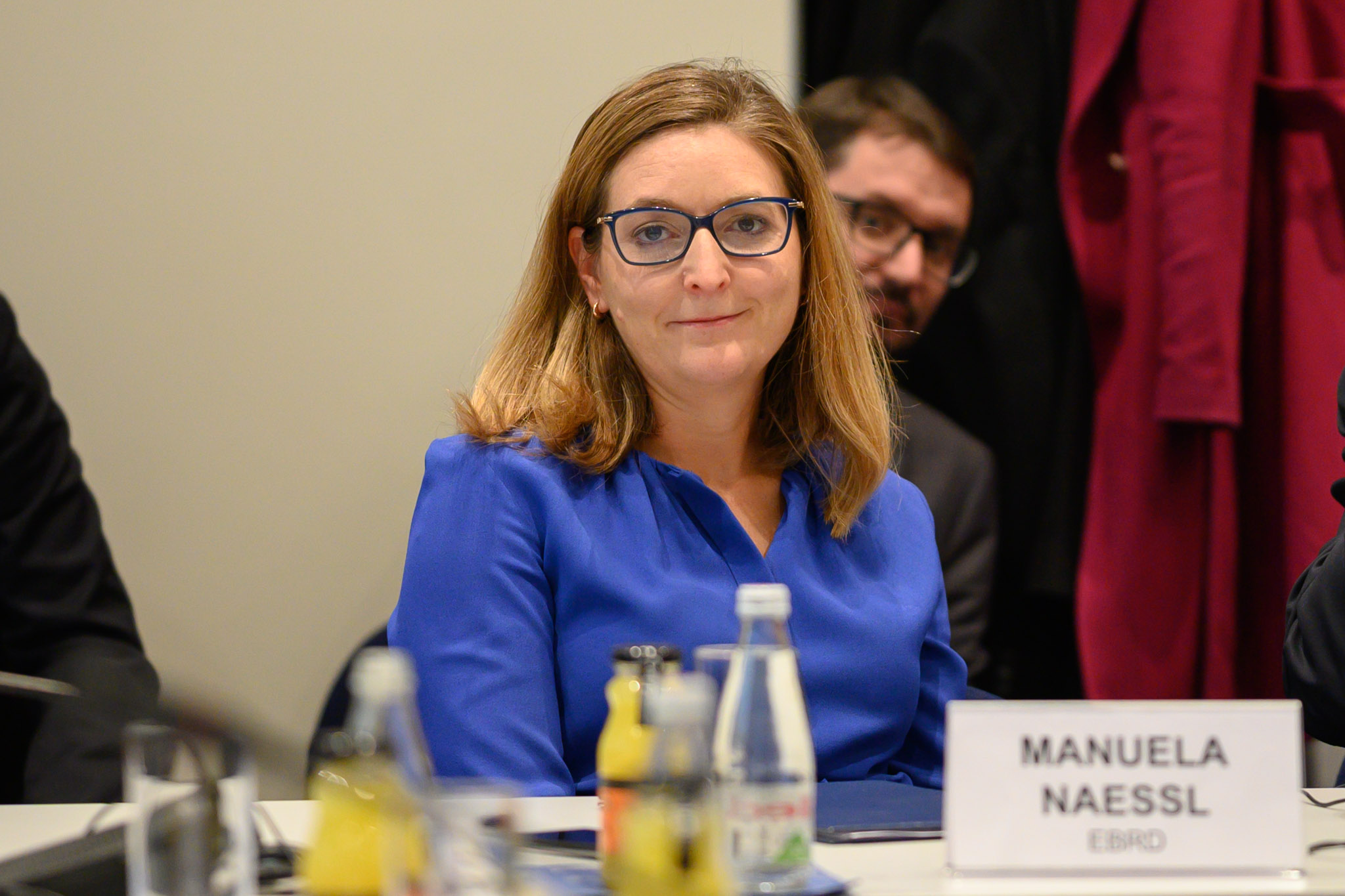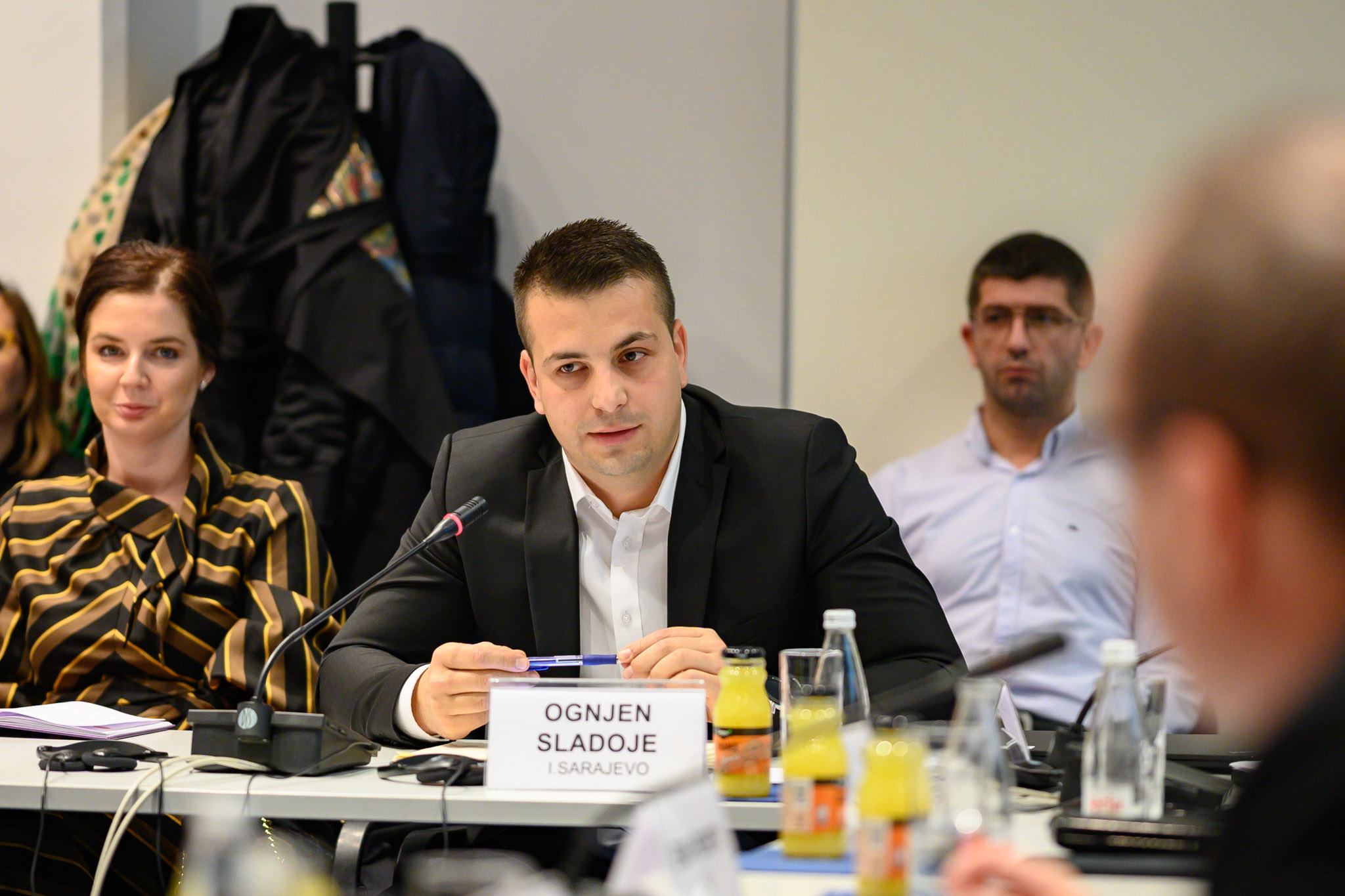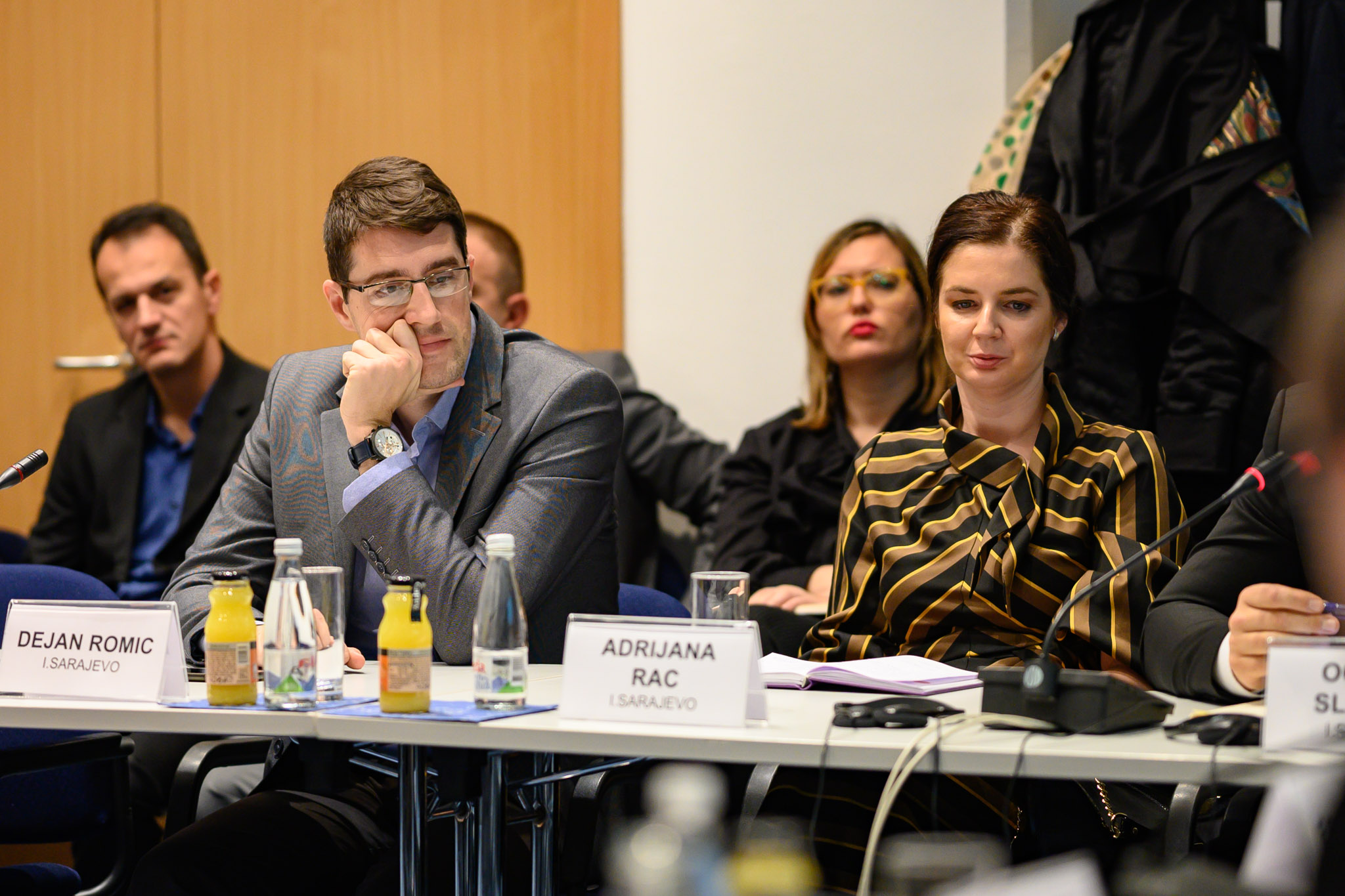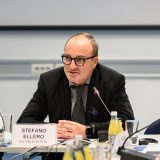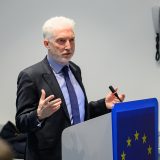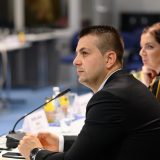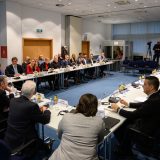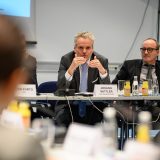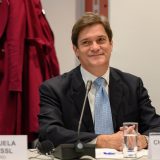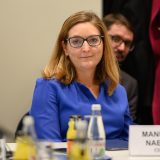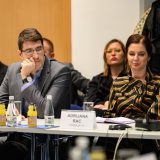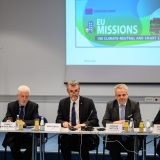In the context of selection of Sarajevo Functional Urban Area as part of the Mission “100 Net Zero Emission Cities”, the EU Office in BiH and Canton Sarajevo on 14 December 2022 launched the “Net Zero Emission Coalition”. The Coalition partners committed to coordinate their activities and to direct resources towards zero emission projects in Sarajevo.
The launch of the Coalition, which will represent a fundamental change in how funds are spent, is an opportunity to link the financing with the objectives of making cleaner environment especially in urban polluted areas such as Sarajevo.
“Working towards climate neutral cities is crucial to curb global greenhouse gases emissions and slow down climate change, but it is also fundamental to improve the quality of life of citizens living in urban areas. We see that very visibly every year in winter. Local authorities recognise this as an acute problem. And we have seen how in the recent few years authorities have taken some positive steps, like in Sarajevo Canton with improved public transport or increasing the number of energy-efficient buildings”, said Ambassador Johann Sattler, Head of the EU Delegation to BiH and EU Special Representative in BiH.
The Ambassador added that, as this problem affects all, a close cooperation and coordination is necessary of all the members of the Sarajevo Functional Urban Area, which is comprised of Canton Sarajevo, City of Sarajevo, City of Istočno Sarajevo, municipalities Centar, Hadžići, Ilidža, Ilijaš, Istočna Ilidža, Istočno Novo Sarajevo, Istočni Stari Grad, Istočno Trnovo, Novi Grad, Novo Sarajevo, RS Pale, Sokolac, Stari Grad, Trnovo and Vogošća.
Prime Minister of Sarajevo Canton, Edin Forto, recalled that emissions and pollution have been rising at 3% year on year for the last decade and that consumption of dirty diesel has risen by 400% in same period. He added that redirecting all financing towards zero emissions will contribute to solving Sarajevo’s chronic air pollution.
“For every challenge we face – in heating and in transport – there is already a technology which has been deployed across Europe and whose cost has fallen dramatically as they have fully matured. Yes, these solutions are usually a bit more expensive to buy but much cheaper to run over their lifetime. As an example an electric bus would be 3 or 4 times cheaper to run than even the cleanest diesel bus and without any toxic exhaust emissions”, Forto said and added: “By redirecting all financing towards zero emissions we will, once and for all, solve Sarajevo’s chronic air pollution, the Gordian knot of our time”.
In September 2021 the European Commission launched five new EU missions, among them the “100 Net Zero Emission Cities” which aims to achieve 100 climate-neutral and smart European cities within a decade and to ensure that these cities act as experimentation and innovation hubs to enable all European cities to follow suit by 2050. This year, Sarajevo Functional Urban Area was selected as one of only three from the Western Balkan region.
Representatives of the international financial institutions agreed that all funding in Sarajevo be targeted towards the zero emission goal. Manuela Naessl, EBRD Head of BiH, recalled that the EBRD has already or some time been supporting Canton Sarajevo and its vision of a greener and more sustainable environment for all citizens including through the development of the Green Canton Action Plan. Under this, EBRD financed projects that aim to improve public transport, with new trams, new tram tracks and an extension of the tramline, as well as energy efficiency in public buildings and investments in water services. These projects alone are going to save 80,000 tonnes of CO2 whilst also improving public services for citizens. Christopher Sheldon, World Bank Country Manager for BiH and Montenegro, noted that the WB is committed to supporting BiH on its path to a carbon free future. Together with the Federal Ministry of Environment and Tourism, WB is preparing an air quality project to support investments in the heating of residential buildings, low carbon transport and bike lanes, and better monitoring of air quality systems in selected cantons, including Sarajevo. The Bank is also working with various cantons to understand the impact of climate change on urban development and the links between floods, landslides, urban built up and other factors. Sandrine Friscia, European Investment Bank Representative for BiH and Montenegro said that EIB, as a bank which finances numerous climate adaptation projects, fully support this initiative of the Net Zero Emissions Coalition to be reflected in the future projects. The EU bank is already financing the reconstruction of the urban transport network in the Canton of Sarajevo which will significantly increase safety and reduce traffic congestion and air pollution.
Following the selection of the Sarajevo Functional Urban Area among the “100 cities”, 10 year Net Zero Action Plan needs to be developed, which will include an overall plan for climate neutrality across all sectors such as energy, buildings, waste management and transport, together with related investment plans. This process will involve citizens, research organisations and the private sector. The aim of the Net Zero Emission Coalition is to meet regularly for practical working level meetings which will be an opportunity to coordinate activities and share best practices.

